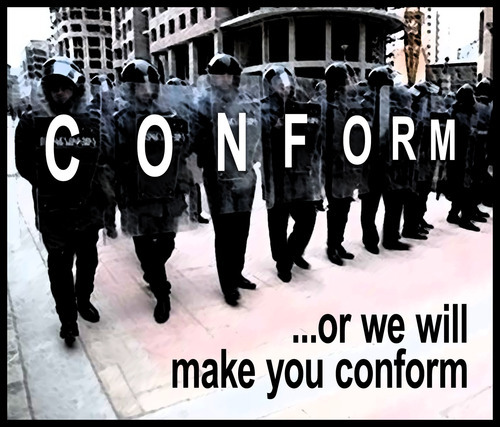United States News
See other United States News Articles
Title: Couple sues after town bans front-yard gardens
Source:
Yahoo
URL Source: https://www.yahoo.com/news/couple-s ... nt-yard-gardens-181405934.html
Published: Jun 8, 2016
Author: Curt Anderson
Post Date: 2016-06-09 11:11:07 by Deckard
Keywords: None
Views: 15397
Comments: 66
MIAMI (AP) — For 17 years, a South Florida couple grew vegetables in a front-yard garden until a new town ordinance was passed limiting such gardens to backyards. Now, the couple is asking a judge to uproot the ban they claim violates their constitutional rights. Tom Carroll and Hermine Ricketts say they dug up the garden in front of their Miami Shores home in August 2013 when town officials threatened to fine them $50 a day if they didn't. The threatened fine came a few months after the Miami Shores Village Council adopted a new zoning plan for the town of about 10,500 north of Miami. The couple sued, and at a hearing Wednesday their attorney said the ban violates the Florida Constitution in several ways, including improper limits on their private property rights and violation of the equal protection clause by singling out vegetables over other plants. "We're not saying you can do anything you want on your property," attorney Ari Bargil told Miami-Dade Circuit Judge Monica Gordo. "We are simply saying you can grow vegetables on your property and that is protected by the Constitution." Richard Sarafan, attorney for Miami Shores, said the new zoning rule was not irrational and treated all homeowners the same: their front yards should be covered with grass, sod or a "living ground cover" not further defined. It's no problem, he said, to have a vegetable garden in the backyard. "There certainly is not fundamental right to grow vegetables in your front yard," Sarafan said. "Aesthetics and uniformity are legitimate government purposes. Not every property can lawfully be used for every purpose." Carroll, who attended the hearing, said the couple sought to grow produce using organic practices, such as no use of pesticides. He said he had never gotten a complaint from a neighbor in all the years he tended the garden, which grew some 75 varieties of vegetables. "It's important that we have the right to do something on our own property," Carroll said. "We're just trying to grow vegetables." The couple is being represented by lawyers from the Arlington, Virginia-based Institute for Justice, which describes itself as a Libertarian nonprofit organization that focuses on issues such as private property rights, school choice and free speech. Gordo did not immediately rule. Both sides said the judge could decide the matter without a trial, but either way the case is likely to be appealed, attorneys said. ******* "Aesthetics and uniformity are legitimate government purposes..." 
Post Comment Private Reply Ignore Thread
Top • Page Up • Full Thread • Page Down • Bottom/Latest
Begin Trace Mode for Comment # 40.
#1. To: Deckard (#0)
You can. In your back yard.
They should be able to do plant whatever they want to in their front yard. It is their property not their neighbors. If you do something on your property that someone thinks brings makes their property worth less then move. It is their property not yours. If you put in new windows i will sue you because you could have gotten better windows so that affects my property. If you plant blue grass i will sue you because hou should have planted fescue. If you park a ford in your driveway i will sue you because you should have bought a porsche. If you put vinyl siding on your house ill sue you because you should have used redwood. If you hace kids ill sue you because they make noise.
It's called "common courtesy" and "being a good neighbor". When you participate in society by buying a home, you take your neighbor's feelings into consideration when you make decisions, realizing that not only do you have rights, so do they. 50 years ago we didn't need 90% of the laws we have today. People took care not to offend other people, especially their neighbors. Today, it's me, me, me. My rights. My life. My choices. Fuck everyone else. So we write laws to control this rude, impolite, and selfish behavior. You reap what you sow.
Carroll, who attended the hearing, said the couple sought to grow produce using organic practices, such as no use of pesticides. He said he had never gotten a complaint from a neighbor in all the years he tended the garden, which grew some 75 varieties of vegetables.
Great! Do it in the back yard. "He said he had never gotten a complaint from a neighbor in all the years he tended the garden" HE said that, huh? Makes you wonder why the ordinance was passed. Did his neighbors come to his defense, supporting his decision to keep that eyesore in front of his house?
#41. To: misterwhite (#40)
A mystery for the ages.
Top • Page Up • Full Thread • Page Down • Bottom/Latest"It's important that we have the right to do something on our own property," Carroll said.
#37. To: misterwhite (#1)
#38. To: A K A Stone (#37)
#39. To: misterwhite, A K A Stone (#38)
When you participate in society by buying a home, you take your neighbor's feelings into consideration when you make decisions, realizing that not only do you have rights, so do they.
#40. To: Deckard (#39)
"Carroll, who attended the hearing, said the couple sought to grow produce using organic practices, such as no use of pesticides."
Replies to Comment # 40. Makes you wonder why the ordinance was passed.
End Trace Mode for Comment # 40.
[Home] [Headlines] [Latest Articles] [Latest Comments] [Post] [Mail] [Sign-in] [Setup] [Help] [Register]
